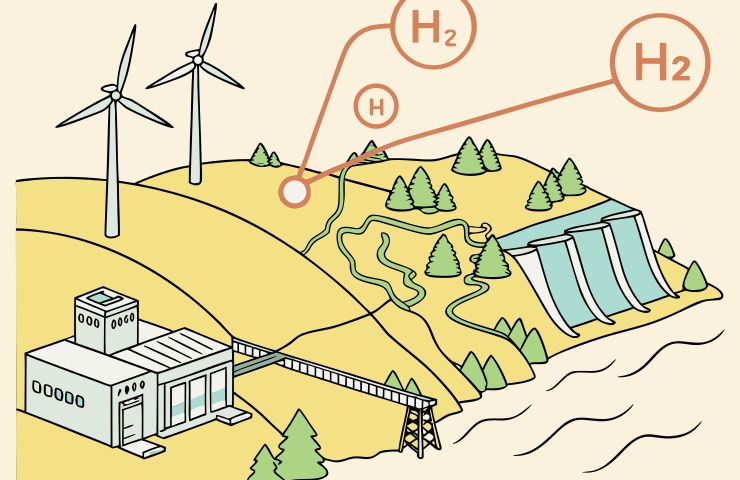
Maine PUC Opens RFP for Green Hydrogen Production Facility
November 20, 2025Decarbonizing heavy industry and long-haul trucking is no walk in the park, but Maine’s decided to roll the dice on green hydrogen. Maine Public Utilities Commission (MPUC) has put out an RFP, inviting developers to design, build and run a green hydrogen plant. It’s a big step in Maine’s broader push for industrial decarbonization and to harness its abundant renewable electricity—hydro, wind, biomass, you name it.
The MPUC’s looking for teams to get their proposals in by December 10, 2025—and they’re aiming to pick the winners by year’s end. The idea is simple enough: crank out hydrogen via electrolysis powered entirely by renewables, keep emissions under 0.45 kg CO₂e per kg of H₂, and cap the electricity draw at 20 MW. Tap into Maine’s clean grid and you’ll qualify for federal clean hydrogen tax credits.
This is Maine’s first major clean hydrogen procurement under the 2024 law authorizing these initiatives. By spelling out emissions and power limits up front, the Commission wants proposals that deliver real climate benefits without blowing the budget.
Design Specs and Tech Details
At its core, this RFP is all about electrolysis: splitting water into hydrogen and oxygen with electricity. As long as that juice comes from renewables, you’ve got bona fide green hydrogen. They’re not married to any particular electrolyzer model, but expect to see details on system design, water sourcing and treatment, oxygen management, and grid interconnection plans.
Key specs include:
- Emissions cap: 0.45 kg CO₂e per kg H₂
- Power limit: 20 MW peak draw
- Proposal deadline: December 10, 2025
- Federal incentives: alignment with clean hydrogen tax credits
Once you’re up and running, the plant must hit consistent performance targets over several years, with monitoring and third-party verification to keep everyone honest.
Historical Context
Until now, most of Maine’s hydrogen—and much of the U.S. supply—has been gray hydrogen, produced via natural gas reforming with hefty CO₂ emissions. Maine’s 2024 clean hydrogen legislation marked a turning point, embedding hydrogen targets into the state’s 2030 and 2045 decarbonization goals. This RFP is the first real-world step toward making those policies stick.
State and Policy Context
Since 1913, the Maine Public Utilities Commission has been juggling electricity procurement, rate-setting, and the tricky balance between affordability and sustainability. With a 45% emissions cut by 2030 and net-zero by 2045, Maine’s funneled investments into onshore wind, hydro, and biomass. Now the Commission is leveraging that clean energy momentum to expand the hydrogen infrastructure that will power heavy-duty industries and transport.
Strategic Angle
For developers, this RFP is more than just a project—it’s a strategic beachhead in New England’s emerging hydrogen infrastructure. Sectors like steelmaking, chemical production, and long-haul trucking can’t flip a switch on full electrification, so they’ll need reliable green hydrogen. But Maine’s transmission and distribution costs run higher than the national average, so proposals must show robust financial models—solid PPAs and off-taker deals—to nail down revenue. Federal tax credits help, but you’ll want airtight numbers to win approval.
Market Outlook and Collateral Benefits
Beyond direct emissions cuts, a hydrogen production facility can spark a whole local ecosystem. Construction will create jobs in electrolyzer installation, electrical engineering, and project management, while operations need crews for maintenance and logistics. Local businesses—water treatment specialists, grid-connection contractors—stand to gain, too. If this flagship project succeeds, electrolyzer makers might set up shop in Maine, driving down costs for future facilities. Over the long haul, R&D partnerships on advanced electrolyzer materials and integration could cement Maine’s place in the clean energy landscape.
Stakeholder Voices
Brad Bradshaw, President of the Hydrogen Energy Center in Portland, says this RFP finally draws a clear roadmap for investors. “This initiative sends the right signal to bring private capital into clean hydrogen,” he explains, noting that firm performance standards will chip away at upfront costs over time.
Meanwhile, Jack Shapiro, Clean Energy Director at the Natural Resources Council of Maine, is all about focus. “We need to dodge greenwashing—hydrogen’s best suited for spots where you can’t just swap in batteries,” he says, underscoring the importance of strict use-case limits.
With notices of interest due by December 10 and full proposals by year-end, Maine’s moving fast. If they award the contract in December and break ground in early 2026, commercial operations could follow soon after. The real test? Balancing economic viability with the state’s ambitious climate goals. If Maine pulls it off, it could set the blueprint for other states and supercharge a Northeast hydrogen infrastructure corridor.



 With over 15 years of reporting hydrogen news, we are your premier source for the latest updates and insights in hydrogen and renewable energy.
With over 15 years of reporting hydrogen news, we are your premier source for the latest updates and insights in hydrogen and renewable energy.